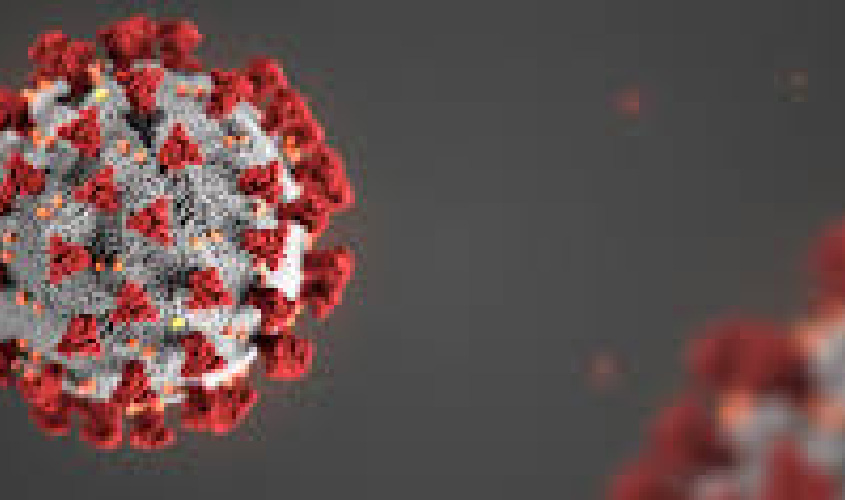Doctors say what makes Covid different is the rapid rate of transmission, longer incubation period and no known treatment.
New Delhi: Infectious diseases like the H1NI influenza virus, dengue, tuberculosis and AIDS have been affecting thousands of individuals and killing hundreds in India every year, but what makes the Covid-19 or the coronavirus different and dangerous, according to doctors, is the rapid rate of transmission, longer incubation period and no known treatment.
In India, over the last three years between 2017 and 2019, more than 82,000 people had been infected by the H1N1 influenza virus. This virus which is also commonly known as swine flu has also taken the lives of more than 4,500 people during this same period, according to the National Centre for Disease Control, Ministry of Health and Family Welfare.
The H1N1 influenza virus which caused a global pandemic in 2009 is believed to have broken out in North America, affecting more than 214 countries and over 700 million people across the globe. According to the World Health Organization (WHO) and the Centre for Disease Control (United States), an estimated 151,000 to 3,00,000 had died of the H1N1 virus in the first year.
This influenza virus is still active in over 94 countries and has been claiming the lives of thousands of people every year.
However, doctors say that unlike the H1N1 influenza, which has similar symptoms like the novel SARS-cov2 (coronavirus), the H1N1 influenza has a vaccine and is not severe for majority of the population.
Doctors have also pointed out the long incubation period of the coronavirus which leads to a potential threat of infecting many others while a patient remains asymptomatic. They say that Covid-19 is more dangerous in terms of severely affecting the lungs and causing pneumonia.
Doctors have also pointed out the long incubation period of the coronavirus which leads to a potential threat of infecting many others while a patient remains asymptomatic. They say that Covid-19 is more dangerous in terms of severely affecting the lungs and causing pneumonia.
Regarding the highly infectious HIV/AIDS, India has more than 2.1 million people living with HIV infection as of 2017, according to data provided by the Ministry of Health and Family Welfare.
The HIV/AIDS disease claims thousands of lives every year and according to the latest data of 2017, HIV/AIDS has killed more than 69,000 people in 2017 alone.
The HIV/AIDS disease claims thousands of lives every year and according to the latest data of 2017, HIV/AIDS has killed more than 69,000 people in 2017 alone.
HIV/AIDS is primarily a sexually transmitted virus, which affects the immune system of the affected individual and weakens the individual’s immune systems, compromising it to fight any infectious disease.
The HIV/AIDS broke out in the 1980s when hundreds of people reported h symptoms of flu and skin infections in the United States and later spread to several other countries, making it a pandemic.
India is also one of the top countries with the highest number of cases of tuberculosis (TB) and according to WHO, India constitutes about 29% of the global TB cases. India is also one of the countries that reports the highest number of deaths due to TB in the world.
India currently has more than 2.6 million active TB cases, with a mortality rate of 4,50,000 deaths related to TB every year. India also faces a severe problem of drug resistance among many TB patients, making it difficult for such patients to be treated.
TB is also an infectious disease, which is caused by the Mycobacterium tuberculosis bacteria (MTB), primarily affecting the lungs. It is a highly infectious disease which spreads through the air by droplets and when an infected person coughs, sneezes or talks, the water droplets from their mouths carries the bacteria infecting other people.
Dengue is a vector-borne disease carried by Aedes aegypti mosquitoes and affects humans through their bites. The mosquito acts as the carrier of the virus that causes high fever, joint and muscle pains and rashes.
Dengue is a vector-borne disease carried by Aedes aegypti mosquitoes and affects humans through their bites. The mosquito acts as the carrier of the virus that causes high fever, joint and muscle pains and rashes.
Dengue has affected more than two lakh people last year alone in India and has been increasing over the last few years. According to the Ministry of Health and Family Welfare, 25 States/UTs have reported increase in the number of dengue cases in 2019 from 2018.
In case of dengue, however, more than 99% recovery rate has been achieved over the last few years and India in 2019 reported just a few hundreds of dengue related deaths from the country.
- Advertisement -

